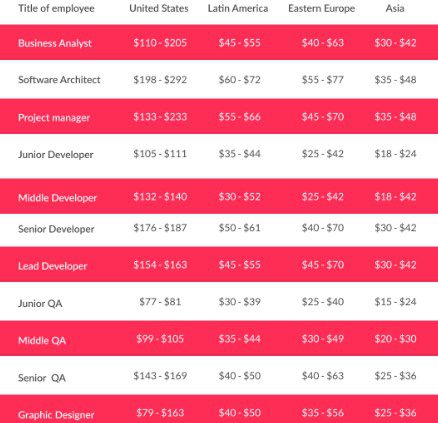- Home
- software development
- How Much Does It Cost to...

Launching your dream project is exhilarating, and when it pays off financially, it’s the icing on the cake. However, many aspiring entrepreneurs stumble due to initial mistakes, with 42% of apps failing because they lacked market demand.
To circumvent such pitfalls, building a Minimum Viable Product (MVP) for startups is a strategic move. But what is an MVP? Let’s delve into its definition and the reasons that make it essential for your startup.
MVP stands for a Minimum Viable Product, a crucial tool for assessing a product’s market potential. For instance, if you’re developing a startup app, creating an MVP allows you to test its feasibility and scope. The benefits extend far beyond, and we’ll explore them shortly.
Now, let’s unravel why building an MVP is imperative for your startup.
Building an MVP involves critical decisions, and one of the primary considerations is cost. Let’s explore four options with varying price points.
Quick, cheap, and accessible, hiring freelancers seems enticing. Platforms like freelancer.com, upwork.com, and fiverr.com offer a pool of developers. However, the drawback lies in their lack of commitment and potential project disruptions.
Opting for in-house development promises transparency and clear communication. The team’s dedication is a plus, but the significantly higher cost could pose challenges for startups on a limited budget.
Local development ensures dedicated teams and documented processes but comes with a hefty price tag, making it suitable for those with deep pockets.
Outsourcing strikes a balance between cost and reliability. Despite challenges in building trust and team integration, it remains a popular option for many startups.

Outsource MVP Development
The actual MVP cost varies based on team type, location, hourly rates, and expertise level. Careful consideration of these factors empowers you to control the MVP price effectively.
Validating your idea is crucial for market acceptance. MVPs provide a cost-effective means to test your application’s potential, as demonstrated by success stories like MailChimp and Airbnb.
This phase offers insights into competitors, market trends, target audience, and business goals. Early discovery facilitates effective budget planning.
Apps vary in complexity, impacting development time and costs. Categorizing apps as Simple, Average, or Highly Complex helps estimate expenses.
Design plays a pivotal role, with costs ranging from $1,500 to $7,500 based on factors like location, team type, design complexity, and time period.
The lean startup MVP follows a systematic approach, transforming ideas into profitable, scalable products. The five stages emphasize idea validation, user journey mapping, MVP requirement prioritization, development, and product launch.
Understanding how much it costs to build an MVP involves analyzing numerous factors. The business, technical, and design aspects play pivotal roles, influencing overall expenses. By systematically navigating through the development process and factoring in all costs, startups enhance their chances of success in a competitive market.
© 2013 - 2025 Foreignerds. All Rights Reserved